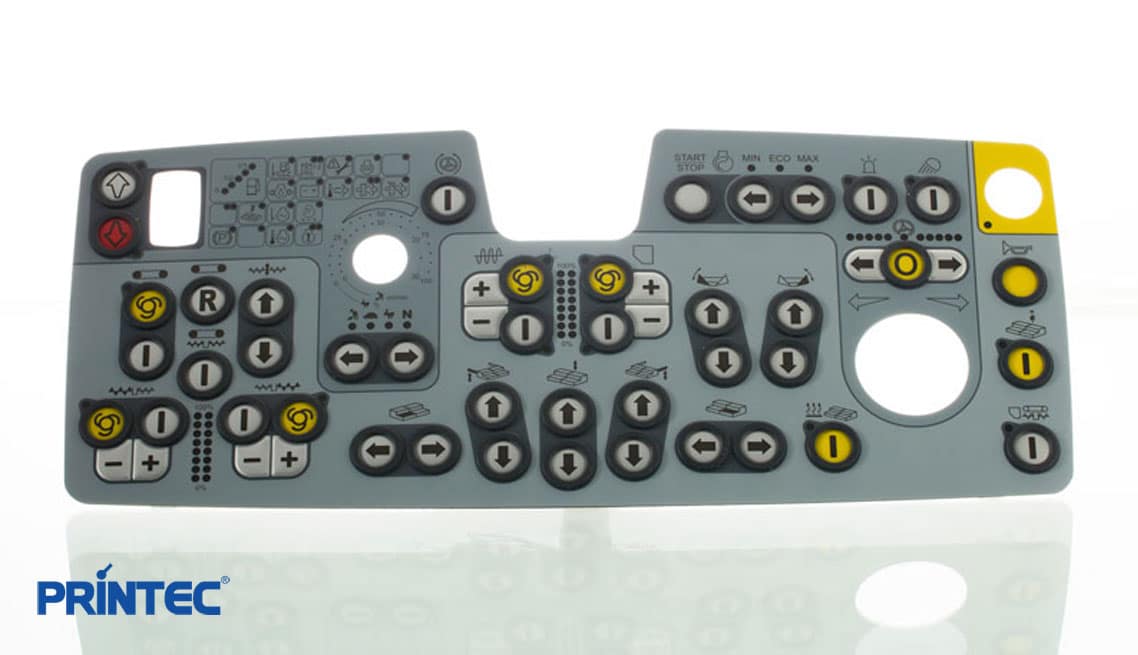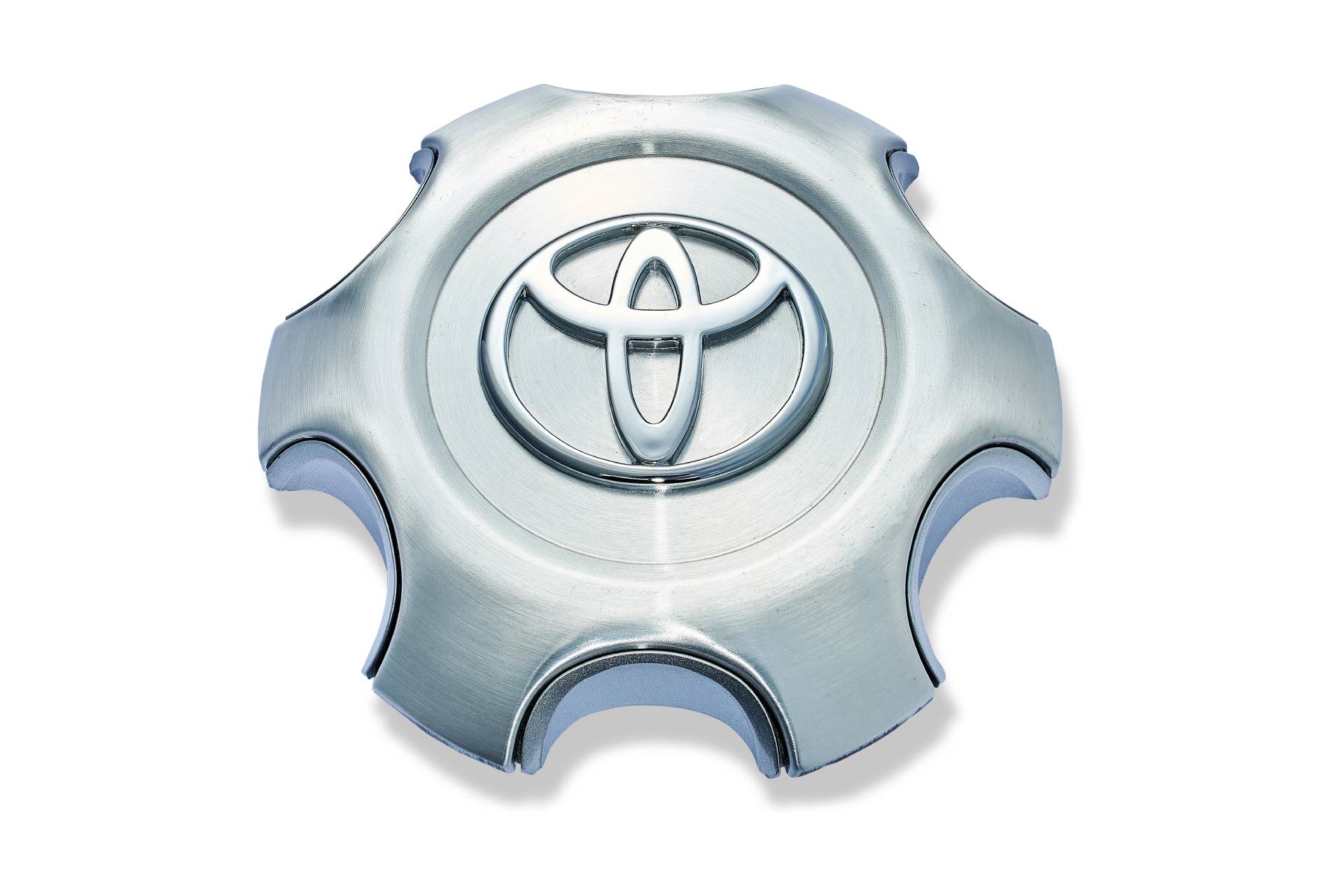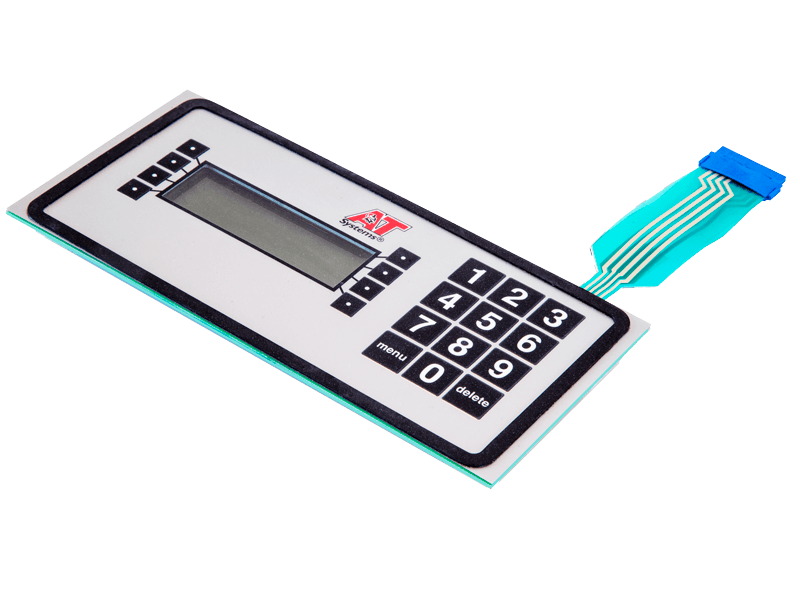You’ll see the difference when partnering with a high-quality membrane switch manufacturer.
You’ll see the difference when partnering with a high-quality membrane switch manufacturer.
Blog Article
Everything About Membrane Change: Comprehending Its Design and Functionality
When you believe about the control interfaces in modern-day tools, membrane buttons commonly come to mind. Let's discover what sets membrane layer changes apart from various other control systems.
What Are Membrane Layer Switches?

Membrane layer buttons can also be tailored regarding shape, dimension, and graphics, allowing makers to create distinct user interfaces tailored to details products. On the whole, membrane switches play a considerable function in boosting user experience across a broad range of applications.
Just How Membrane Layer Switches Over Work
When you push a trick on a membrane switch, it activates a straightforward yet reliable mechanism. membrane switch manufacturer. The top layer, often made of flexible product, pushes down onto a conductive layer underneath it.
You'll discover that the responsive comments varies based upon the switch layout, offering either a soft click or a more noticable response. When you release the secret, the membrane go back to its initial placement, reopening the circuit and quiting the signal. This process takes place nearly immediately, guaranteeing a responsive user experience.
Membrane buttons are prominent as a result of their longevity and resistance to dirt and wetness, making them optimal for different applications, from family home appliances to clinical tools. Recognizing this operation helps you appreciate their prevalent usage.
Secret Components of Membrane Layer Buttons
Recognizing the crucial elements of membrane switches is basic for comprehending their functionality and layout. At the core, you'll locate the graphic overlay, which gives the visual interface for users. Below that, there's a spacer layer that divides the circuit layers, guaranteeing that they do not make contact until pressed. The circuit layer is where the magic happens; it includes conductive traces that finish the circuit when you press the switch. Another necessary element is the sticky backing, permitting the button to adhere to surfaces safely. The safety layer guards against ecological aspects and use, prolonging the button's lifespan. Each part plays a considerable duty in ensuring trustworthy performance and customer interaction. By recognizing these elements, you'll gain understanding right into how membrane switches over operate and their importance in various applications.
Products Made Use Of in Membrane Layer Switch Over Style
The efficiency and toughness of membrane switches heavily depend on the products made use of in their style. You normally encounter polyester and polycarbonate as primary substrates due to their outstanding stamina and flexibility. These materials withstand scratches and chemicals, making them suitable for requiring environments.
The conductive layers commonly use silver or carbon, picked for their integrity and conductivity. membrane switch manufacturer. Silver gives superior performance, while carbon is a cost-efficient choice. For the overlay, you might consider a matte or glossy coating, relying on your aesthetic needs and user experience
Adhesives play a crucial duty too; they bond layers securely and guarantee longevity. Make specific to choose adhesives that stand up to ecological aspects like temperature level and humidity. Do not forget the significance of an excellent printing strategy for graphics, as it advice enhances both capability and visual charm. Selecting the right materials will certainly assure your membrane layer button stands the test of time.
Style Considerations for Membrane Layer Switches
While making membrane buttons, it's crucial to take right into account different factors that affect their performance and individual experience. Beginning by focusing on the format and button news size; make certain they're intuitive and very easy to browse.
Do not ignore the visuals layout; clear labeling and shade contrast are substantial for exposure. Verify your design accommodates ecological factors, like dampness or temperature level variations, which could impact efficiency. Finally, keep in mind the value of screening models with real users to gather comments and make necessary adjustments. This iterative process aids you fine-tune the design, confirming it fulfills both practical and aesthetic needs efficiently. By carefully taking into consideration these elements, you'll create a membrane layer switch that boosts functionality and contentment.
Applications of Membrane Buttons
Membrane layer buttons are flexible elements found in different applications, from commercial tools to consumer electronics. You'll see their effect in makers that require sturdy interfaces and in devices that benefit from streamlined designs. Comprehending these applications aids you value the functionality and practicality of click to read more membrane layer buttons in daily technology.
Industrial Devices Usage
When you're looking to improve the functionality of industrial tools, membrane buttons supply a dependable solution that integrates toughness with straightforward layout. These buttons are ideal for extreme settings, giving resistance to dust, wetness, and chemicals. Embrace membrane layer buttons to simplify your procedures and boost general performance.
Customer Electronics Combination
In the domain of consumer electronics, membrane switches play a necessary function in improving customer communication and gadget capability. You'll find them in devices like microwaves, remote controls, and pc gaming consoles, providing a smooth means to communicate with innovation. Their streamlined design enables easy integration right into numerous items, making controls intuitive and user-friendly. With their ability to integrate graphics and backlighting, you can take pleasure in a contemporary aesthetic that enhances the gadget's general appearance. Membrane buttons also ensure longevity and resistance to dust and wetness, expanding the life-span of your electronics. By selecting membrane switches, you improve not simply the capability yet likewise the design of your devices, making everyday communications smooth and pleasurable.
Benefits and Downsides of Membrane Layer Buttons
While membrane layer switches supply a range of advantages, they also come with some downsides that you need to consider. One significant benefit is their small design, making them excellent for space-constrained applications.

Membrane switches can have a shorter life-span contrasted to mechanical buttons, particularly under heavy use. They can additionally be less responsive, which might impact customer responses throughout operation. Balancing these pros and cons will certainly help you establish if membrane switches are the appropriate fit for your task.
Regularly Asked Inquiries
For How Long Do Membrane Switches Typically Last?
Membrane switches usually last in between 5 to ten years, depending upon usage and environmental problems. You'll wish to evaluate elements like wear, direct exposure to wetness, and temperature variations to assess their long life successfully.
Can Membrane Layer Switches Over Be Custom-made for Certain Styles?
Yes, you can tailor membrane layer switches to fit specific layouts (membrane switch manufacturer). You'll have the liberty to choose shades, forms, and layouts that match your task's needs, guaranteeing they mix perfectly with your general aesthetic
What Is the Price Variety for Membrane Layer Change Manufacturing?
The expense array for membrane layer button production commonly drops in between $1 and $10 each, depending upon aspects like layout complexity, quantity, and materials. You can get quotes from suppliers to find the most effective choice.

Are Membrane Layer Switches Over Waterproof or Immune?
Membrane buttons can be made to be water resistant or resistant, depending on materials used and building and construction approaches. If you need them for wet atmospheres, assure you specify those requirements during the design process.
Just How Do Membrane Layer Switches Contrast to Conventional Buttons?
Membrane layer buttons are normally thinner and extra adaptable than traditional buttons, offering a streamlined style. They're usually less complicated to clean up and integrate, yet might not provide the responsive feedback you're utilized to with mechanical options.
Conclusion

Report this page